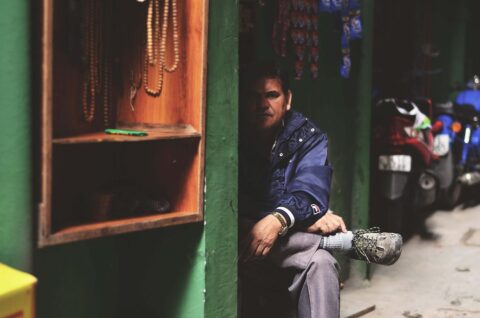Reported
VP Candidate Tim Walz Has Deep Connections to Agriculture and Conservation
Future of Food•5 min read
Perspective
The cow is considered sacred in Hinduism, but India's growing cow protection movement has less to do with animal welfare than with vigilante violence towards the lowest-caste members of society.


Words by Lakshmi Venkataraman
The past few years have seen a significant rise in Hindutva, an intolerant and nationalist ideology that promotes Hinduism’s values as the sole basis of Indian culture. In the name of animal welfare, a Hindutva movement has violently targeted minorities in India, including the Dalits, who historically belonged to the lowest caste, and Muslims, who face constant discrimination. Those truly interested in the moral rights of animals have an obligation to outspokenly condemn this violence to preserve our legitimacy and promote a more compassionate world.
Vigilante violence to avenge cows, a species revered by the Hindu faith, has become part of pervasive political action under the nationalist regime of Prime Minister Modi. A few years ago, a man near Delhi was lynched for allegedly slaughtering a calf. A Kashmiri Muslim man was murdered in a petrol bomb attack for allegedly killing three cows. Two Muslim women were raped under the pretense of having eaten beef, and a Muslim dairy farmer was beaten to death in Rajasthan.
In the past two months alone, two people, including a police official, have been killed for suspected cow slaughter, and several people dependent on cattle trade have been robbed of their livelihoods. Muslims have been the target of 84 percent of all cow-related murders.
Many of the assumptions underpinning Hindu nationalist support for cow welfare are incorrect. It’s common knowledge that India is a vegetarian state when over 70 percent of the population consumes meat. There are also moral inconsistencies with these views on animals. Some consider cows to be holier than bulls or buffaloes–and that a cow’s moral status exceeds those of chickens, pigs, goats, and fish.
Hindu nationalists also pay no attention to the abhorrent cruelty in the dairy and egg industries. India is the world’s largest producer of milk, so Indians genuinely concerned for animals should target the growth of this industry instead of small-scale butchers.
“Gau raksha,” or “cow protection,” has less to do with cow welfare than with reinforcing and legitimizing the historical hegemony of upper-caste Hinduism. Such vigilantism has seriously damaged the reputation of those legitimately working for animal protection in India, allowing liberal Western audiences to incorrectly construe them as religious and casteist fundamentalists.
Violence of any kind against animals or people should be strongly and vocally condemned. Animal protection groups must proactively distance themselves from ideologies that incite hatred. A more nuanced and inclusive narrative is the need of the hour. Advocates must create a completely non-violent movement for animals, speaking up proactively for Dalits and Muslims in times of violence and raise awareness of the connections between these issues of oppression.
Our legitimacy will be a vital asset in fighting large-scale violence against animals. Every year, for food alone, over 60 billion land animals are bred, raised in confinement, mutilated, artificially fattened, injected with antibiotics, and subjected to other unspeakable horrors until they are slaughtered–significantly before their natural life spans end. In India, over a billion chickens and 300 million cows are bred and killed each year.
Producing meat, dairy and eggs are one of the most environmentally destructive activities in the world. According to leading authorities, animal agriculture is responsible for more than half of global greenhouse gas emissions, almost 30 percent of our global water consumption, and covers 45 percent of the Earth’s ice-free land. The consequences of this destruction are felt disproportionately by the very socially and economically deprived classes at the receiving end of the cow-related political violence waged in India.
The onus for change should not be on the Dalits, Muslims, or poor, who have faced centuries of discrimination in India, especially in relation to their food choices. Like all other social issues, the burden of change starts with the privileged, who have the capacity for change. India’s elite has the bandwidth and resources to consider a shift towards plant-based eating. It is a simple choice between plant- or animal-based foods at a store or restaurant.
A version of this article first appeared in The Telegraph India.